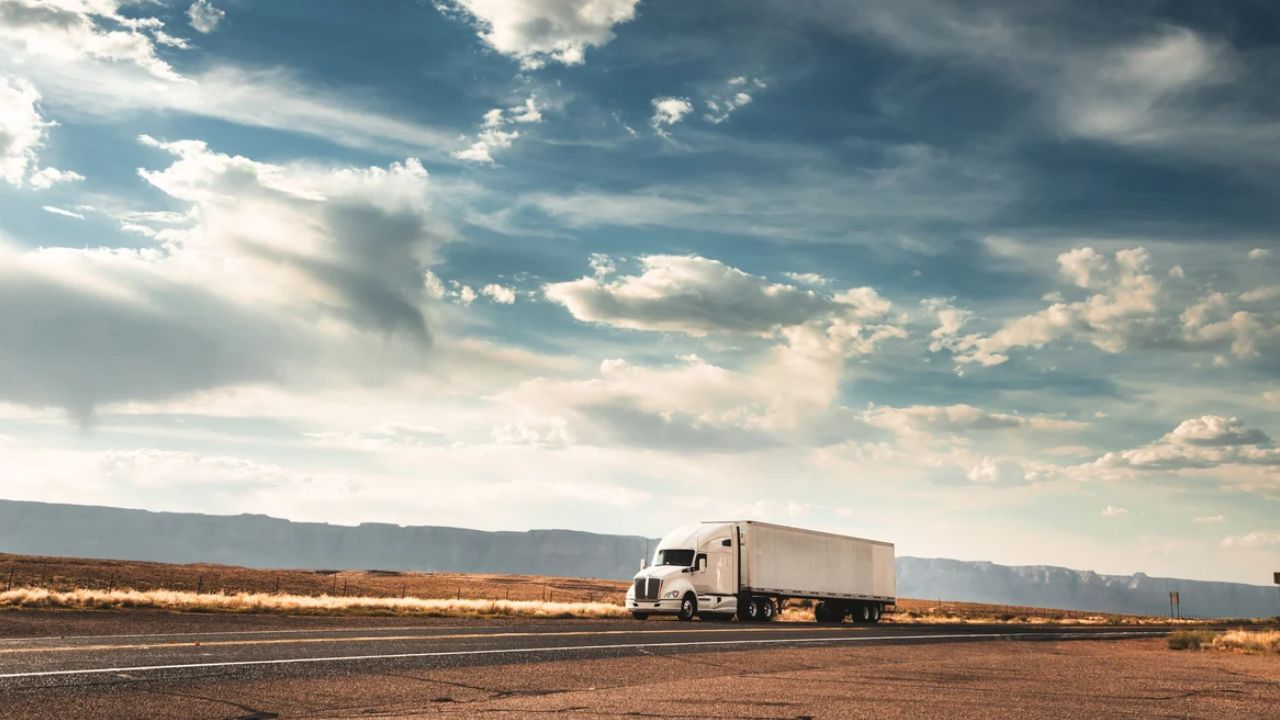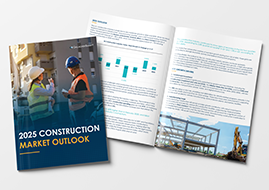By: Doug Betkowski Lori Ilgenfritz

August 9, 2023 — From advanced safety features and predictive analytics to autonomous trucks and electric vehicles, artificial intelligence (AI) is rapidly changing the transportation industry. AI capabilities are invaluable tools for trucking companies in optimizing their operations, allowing them to deliver more quickly and reliably for their customers. This technology will only continue to evolve, but with it, trucking companies must prepare for new types of claims and risk they may encounter.
In this edition of Industry Insights, Gallagher Bassett (GB) experts Doug Betkowski, SVP — Transportation Practice Leader, and Lori Ilgenfritz, Director, Client Services, discuss the benefits and challenges of AI technology in transportation and how it's changing the future of the industry.
1. Currently, in what ways are you and your transportation clients utilizing AI or exploring its utility for future use?
Doug Betkowski (DB): What we see in the transportation industry today is companies adopting many of the technologies that have been out for a while but are less available due to cost.
Trucks today are linking drive-cam technology with the electronic control module (ECM), or what they call the "black box," to report the metadata that comes from the truck while the driver is in motion. So, you're getting real-time speed, real-time reaction, and other analyses of what the truck is actually doing. These technologies improve safety, driver alertness, and fuel efficiency. Companies can also identify potential opportunities to increase operating efficiencies, such as choosing safer, more efficient routes and reporting fast-moving weather events.
We can use these tools to not only measure how a truck is operating or how safely but to train drivers about safety. If a driver is prone to exceeding the speed limit, you can monitor their performance, inform them of the issue, and equip them to respond with corrected behavior in real time. This protects the driver while on the road as well as creates a more positive workplace environment, meaning that drivers are not hit with poor and possibly overdue performance reviews.
Lori Ilgenfritz (LI): On the workers' compensation side of auto liability, my clients are looking to AI to help reduce accidents that result in injuries. It's an emphasis on improving safety. They're looking at available technologies, like drive cameras, and the results from vendors, clients, and other trucking companies to understand the full impact and return on investment (ROI) of these developments.
For example, if an organization has to spend $2 million and the return is only $100,000, they might not move forward with it. But drive cameras and collision avoidance technology, like automatic braking systems, are revolutionary. A lot of the accidents my transportation clients see have clear liability, but if a driver was distracted or fell asleep and the truck could slow or stop itself, it might mitigate some of those catastrophic accidents. So, when it comes to ROI, AI technologies can prevent injuries or deaths to drivers and the public.
2. What are the key benefits and potential downsides of automated vehicle technologies in transportation?
LI: First and foremost, the key benefit would be to improve public safety, and then we would expect to reduce accidents and injuries as well as the cost of these occurrences.
But one of the downsides of automated vehicle technology is that performance and usage are always being recorded. We have immediate access to information like truck speed and driver behavior, and companies have the ability to pull this out. The question here is: if companies are not using this information to correct bad driver behavior — especially behavior that could result in a catastrophic accident — could they be held liable for accidents? The jury is still out on how this information could be used against the company in litigation.
Another downside deals with hiring independent contractors. Companies that employ independent contractors have to balance the benefits of required safety equipment with the availability of drivers. If they require extensive safety equipment, an independent contractor may choose to drive for a company that does not require as many stringent precautions.
DB: A few of the potential benefits include monitoring driver behavior, creating safer routes, improving efficiencies and fuel, and reducing the time to deliver loads.
But it's a double-edged sword. In a business that has low margins and increasing costs — labor, fuel, fleet investment, etc. — there must be a return on investment that makes sense for both large and small fleets.
And following Lori's response, data collection and retention can backfire if we don't see the data being utilized to manage known issues like a problematic or potentially accident-prone driver — for example, failing to identify a fatigued driver or one that may have a medical issue like sleep apnea. Furthermore, if the data is not retained, the trucking company could be held responsible for potential evidence spoliation and an adverse inference as to why the data — which the other side will contend was potential evidence to support their claims — was destroyed or changed.
If there is a technological failure, like equipment not being properly maintained or system errors occurring, companies could face new claims for product liability, and the question then becomes who is responsible for those failures.
3. What are the primary obstacles trucking companies face in adopting AI-driven technologies from a risk management perspective? Do these challenges change depending on the size of the company and level of operations?
DB: Trucking companies traditionally operate with tight margins. They're not making much per load, which is why many companies try to keep trucks on the road as much as possible and running efficiently. So, if AI can increase savings, then it seems worth it, without question. But it can be problematic for both small and large fleets. Whether it's one truck or 1000 trucks, implementing this technology as part of the truck cost or as an aftermarket product can cost millions of dollars for a fleet. Companies have to weigh that against the ROI.
Another point to consider is that companies may lose clients or opportunities for business if they do not adopt AI in their operations. Businesses that require frequent shipping are looking for top-notch companies with safe drivers, quick and reliable deliveries, and the capabilities to continue evolving with technology.
LI: The cost of adopting AI technologies is by far the biggest obstacle. There are several layers to this process, including purchasing the equipment, implementing it throughout operations, and maintaining its use. Investing in AI also requires investing in staff that can understand, manage, and access the information produced by the technology, and as I mentioned earlier, this information is constantly being recorded. Implementing AI is more than installing a dashboard camera. Trucking companies need the internal infrastructure to support their risk departments and operations in managing the information.
As for company size, the cost is relative. Whether it's a small business with 10 trucks or a company with hundreds, each will have to manage the AI that they've implemented based on their needs. Larger companies will have more staff to handle the influx of information, but smaller companies will have less data to maintain. Ultimately, it depends on each organization and what they prioritize in protecting and growing their business.
4. How do these advancements change an organization's claims handling strategy? Should they anticipate more or fewer claims, and do they need to adapt to new types of risk or liability?
LI: The increased amounts and different types of data may change claims handling practices in that there's more information available to be cognizant of. When we're handling a claim and know that there was a camera on board, we'll be able to pull that information to inform and support our approach.
And certainly, the types of claims are going to change with new technologies — they already are changing. Let's say a truck is equipped with automatic braking, but the system doesn't engage and results in a collision. There are several options for who could be held responsible: the driver, the person who installed the equipment, or the manufacturer, for example. Right now, it's ultimately up to attorneys and who they decide to go after, and this could vary from claim to claim. Are they seeking higher damages or simply trying to narrow down who's responsible? We have to consider this when handling the claims.
DB: Some in the industry think that by 2050, we may have automated fleets throughout the United States using major roadways for transcontinental delivery. This leads to the question: are we going to have a different kind of claim evolve from this? We are no longer only assessing a negligent operation or retention of information. We have to consider who is liable for the product, as Lori noted.
It is an interesting opportunity to ask if we need different types of drivers, hiring those who have technology knowledge as well as driving experience, and for our business, if we need to look at different types of claims handlers who have more expertise in handling product liability on top of auto and transportation liability.
5. How can a claims and risk management partner like Gallagher Bassett help transportation businesses navigate these new challenges and find opportunities?
LI: For workers' compensation, Gallagher Bassett (GB) leverages the decades-long expertise of our transportation claims professionals to provide targeted recommendations that help clients mitigate risk and reduce exposure. In this way, our team is always leading with the best service available in the industry.
Additionally, GB has a consulting group that focuses on safety and tries to minimize risk at the outset. And then, we have our Major Case Unit (MCU), which is composed of expert transportation claims handlers. Their specialty is liability, so they are prepared for the varying situations and developments in this industry.
DB: At GB, our extensive experience, especially at the MCU level, coupled with our knowledge and contacts throughout the industry, provide us with a significant advantage in handling the various types, frequency, and complexity of claims confronting our clients. Additionally, we are constantly evolving, learning, and participating in conferences, seminars, and training so that we are on the cutting edge of developments in the industry. This includes new technology, recent strategies implemented by the Plaintiff Bar, monitoring current cases, decisions, and updates in the law, and new entries into the fray by plaintiff counsel and experts alike.
When it comes to the total cost of risk, we provide solutions that improve our clients' operations and protect their bottom line, reputations, drivers, and customers. In this industry, trucking companies need to partner with a specialist like GB, who is backed by expertise and can keep up with the ever-evolving standard of technology.
Authors

Doug Betkowski

Lori Ilgenfritz
Make Gallagher Bassett your dependable partner
When making the right decision at the right time is critical to minimize risk for your business, count on Gallagher Bassett's extensive experience and global network to deliver.

